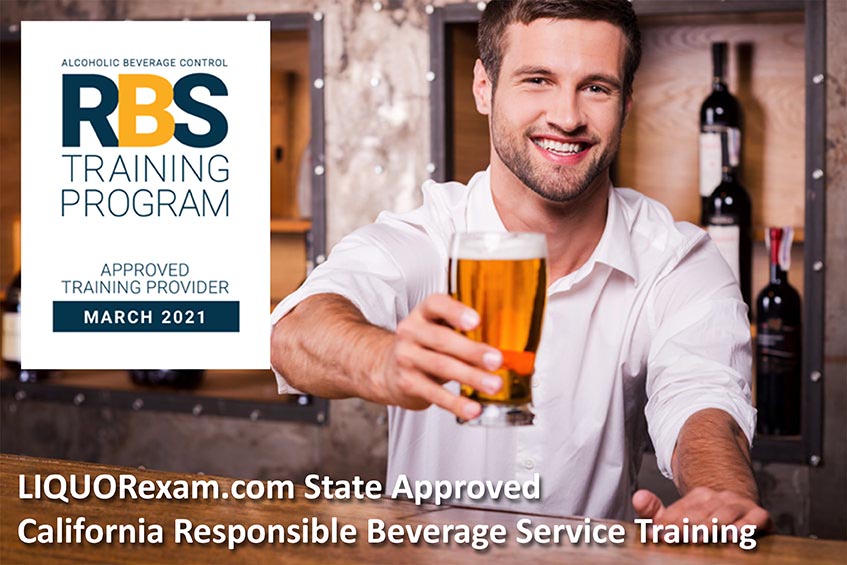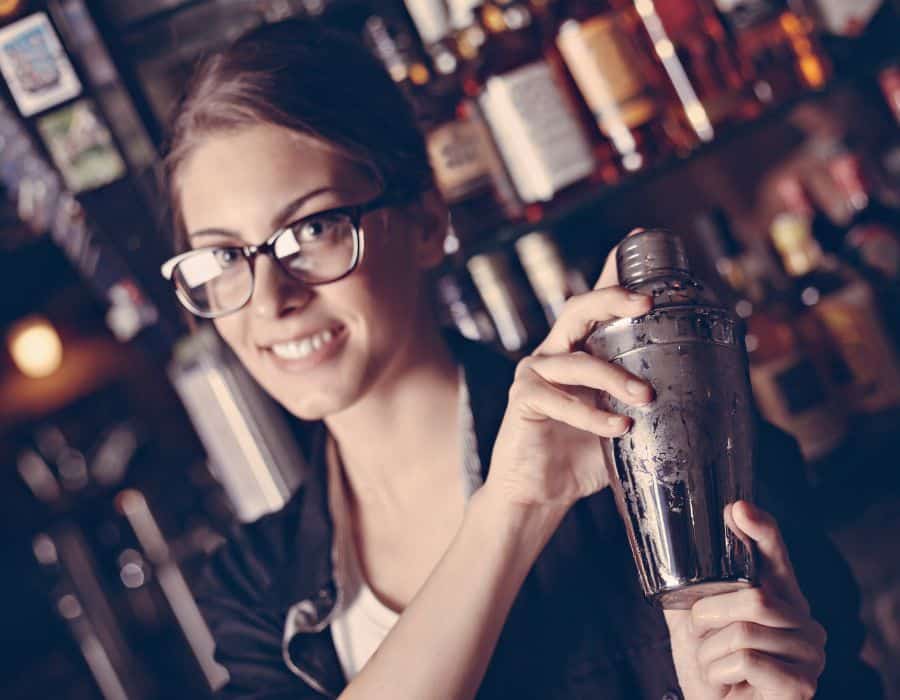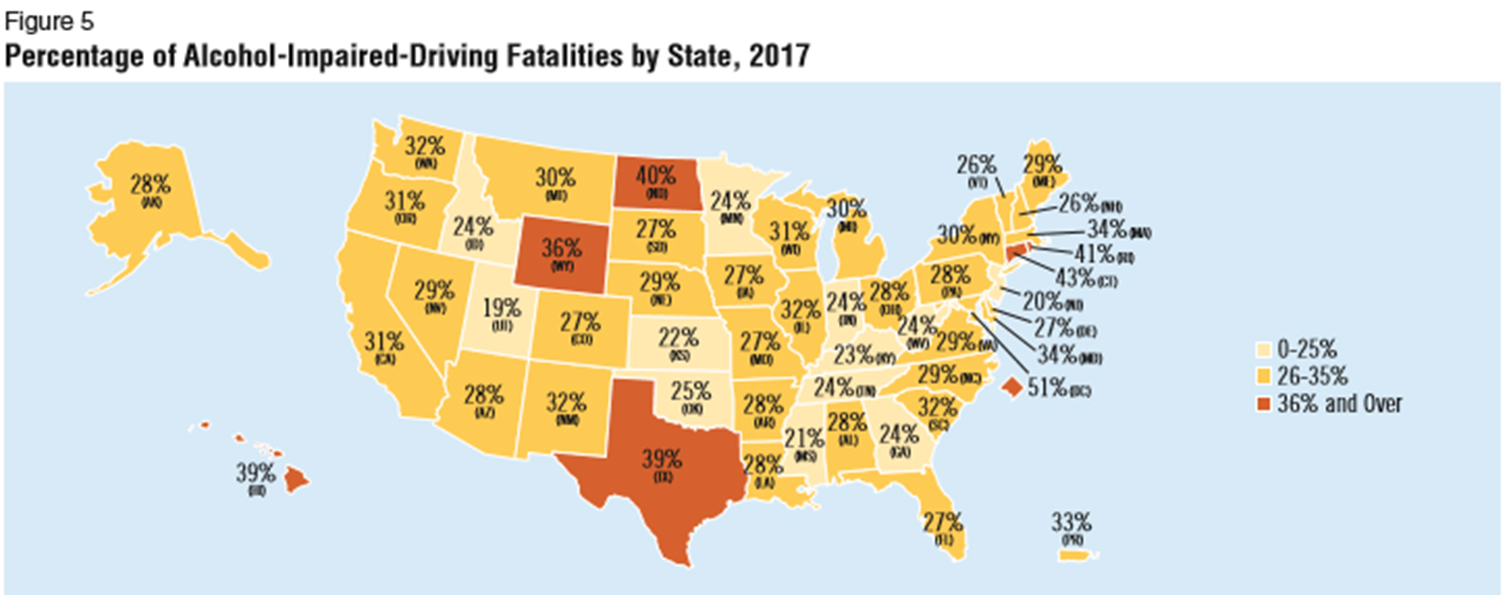Secure Your Job with safe serve certification michigan for Food Safety Professionals
Secure Your Job with safe serve certification michigan for Food Safety Professionals
Blog Article
Master Accountable Alcohol Solution With Comprehensive Accreditation Programs
The mastery of responsible alcohol solution is not just a regulative need; it is a fundamental component that improves the track record and operational stability of facilities within the friendliness sector. Comprehensive certification programs use invaluable insights right into neighborhood legislations, efficient treatment techniques, and client involvement methods. By purchasing these training initiatives, services can cultivate a culture of duty amongst their team, mitigating risks and enhancing customer contentment. However, the path to efficient execution and its lasting advantages may not be as straightforward as it appears. What challenges lie in advance for those that look for to elevate their service criteria?

Value of Accountable Alcohol Solution
Responsible alcohol solution is necessary to promoting public health and security in facilities that serve alcohols. It encompasses a variety of methods developed to avoid the overconsumption of alcohol, minimize the threat of alcohol-related harm, and ensure a risk-free setting for patrons and personnel alike. By promoting liable service criteria, establishments can minimize potential events of intoxication, which may cause crashes, violence, or other adverse results.
In addition, liable alcohol solution improves the total customer experience. Additionally, establishments that adhere to accountable service practices typically experience lower insurance coverage premiums and reduced lawful obligations.
In addition, applying liable alcohol solution methods aligns with more comprehensive public wellness efforts targeted at decreasing compound abuse and promoting community health. This aggressive method not just secures individual patrons yet likewise contributes to a healthier society. Ultimately, accountable alcohol solution is not simply a lawful responsibility; it represents a moral dedication to the well-being of customers and the area at large.
Key Parts of Certification Programs
Qualification programs for responsible alcohol solution typically incorporate a number of key elements made to furnish personnel with the essential skills and understanding to offer alcohol safely. Most importantly, these programs often include detailed training on neighborhood and state alcohol legislations, guaranteeing that individuals comprehend their lawful obligations and the consequences of stopping working to conform.
Another crucial element is the recognition of indicators of drunkenness - servsafe food handlers card. Team are educated to acknowledge behavioral cues suggesting when a client might be over-served, allowing them to interfere suitably
In addition, effective communication techniques are emphasized, instructing staff exactly how to involve with consumers in a way that promotes accountable drinking. This consists of training in conflict resolution techniques, allowing staff to handle difficult situations comfortably and properly.
Furthermore, programs frequently incorporate practical circumstances and role-playing exercises, supplying participants with real-life examples to exercise their abilities. Last but not least, ongoing education and learning and sources are important for preserving understanding and skills gradually, as policies and best techniques progress. Together, these elements create a comprehensive framework that empowers personnel to cultivate a much safer drinking setting while minimizing obligation for establishments.
Advantages for Staff and Facilities
Staff and facilities alike gain significant advantages from taking part in liable alcohol solution certification programs. For team, these programs enhance expertise and skills associated with alcohol service, outfitting them to recognize signs of intoxication and carry out effective intervention techniques. This training not only promotes a feeling of confidence amongst staff members but additionally promotes a culture of safety and security and responsibility in the work environment.
For establishments, purchasing qualification programs can bring about reduced obligation and less incidents related to over-serving. By ensuring that staff are trained in accountable solution techniques, establishments can mitigate risks connected with alcohol-related cases, thereby safeguarding their track record and financial security. Moreover, several jurisdictions offer rewards, such as lower insurance coverage premiums, for accredited facilities.
In addition, applying qualified techniques can boost consumer satisfaction and loyalty. Clients are more most likely to go back to places that prioritize their safety and security and health. Inevitably, a dedication to liable alcohol service not only cultivates a positive setting yet additionally improves the general operational performance of facilities, making it a wise investment for long-term success in the hospitality sector.
Usual Difficulties in Alcohol Service
Ensuring effective alcohol solution is not without its difficulties, even in establishments committed to liable methods. One considerable challenge is the demand for personnel to accurately assess clients' alcohol usage levels. servsafe food handlers card. This calls for a keen understanding of how numerous aspects, such as food intake, resistance, and private differences, affect intoxication
Additionally, the stress to maximize sales can contrast with liable solution methods. Employees may encounter difficulties in rejecting solution to drunk people, specifically in social settings where peer pressure and assumptions prevail.
An additional challenge is remaining upgraded with neighborhood laws and guidelines regarding alcohol solution. Compliance is crucial, yet constant adjustments in regulations can develop complication and might lead to unintentional violations.
Educating programs may not always cover the nuances of real-world scenarios, leaving team unfit to manage intricate circumstances. Irregular communication in between management and employees relating to assumptions for accountable service can better worsen these problems.
To browse these difficulties properly, establishments must promote a setting of support, emphasizing the relevance of liable solution while providing the needed devices and training for staff to do well.
Steps to Obtain Qualification
To get Accountable Alcohol Solution Certification, applicants usually begin by researching the specific requirements mandated by their local regulative authorities. These needs might vary considerably depending servsafe alcohol certification upon the region, so it is vital to familiarize oneself with the relevant laws and policies.

After picking a program, candidates need to finish the requisite training, which typically covers subjects such as recognizing intoxication, recognizing lawful responsibilities, and applying techniques for accountable solution. Participants must proactively involve with the material, as this knowledge is important for efficient alcohol solution.

Adhering to training, prospects normally take an exam to examine their understanding of the product. Effective completion of this analysis causes qualification.
Conclusion
Finally, mastering responsible alcohol service with comprehensive certification programs is essential for advertising safety and enhancing consumer experiences within the hospitality sector. By gearing up team with the essential understanding and skills, establishments not only alleviate dangers connected with overconsumption and legal obligations but additionally cultivate a culture of obligation. This dedication to responsible service eventually causes enhanced customer loyalty and functional success, strengthening the value of recurring training and adherence to alcohol service criteria.
Report this page